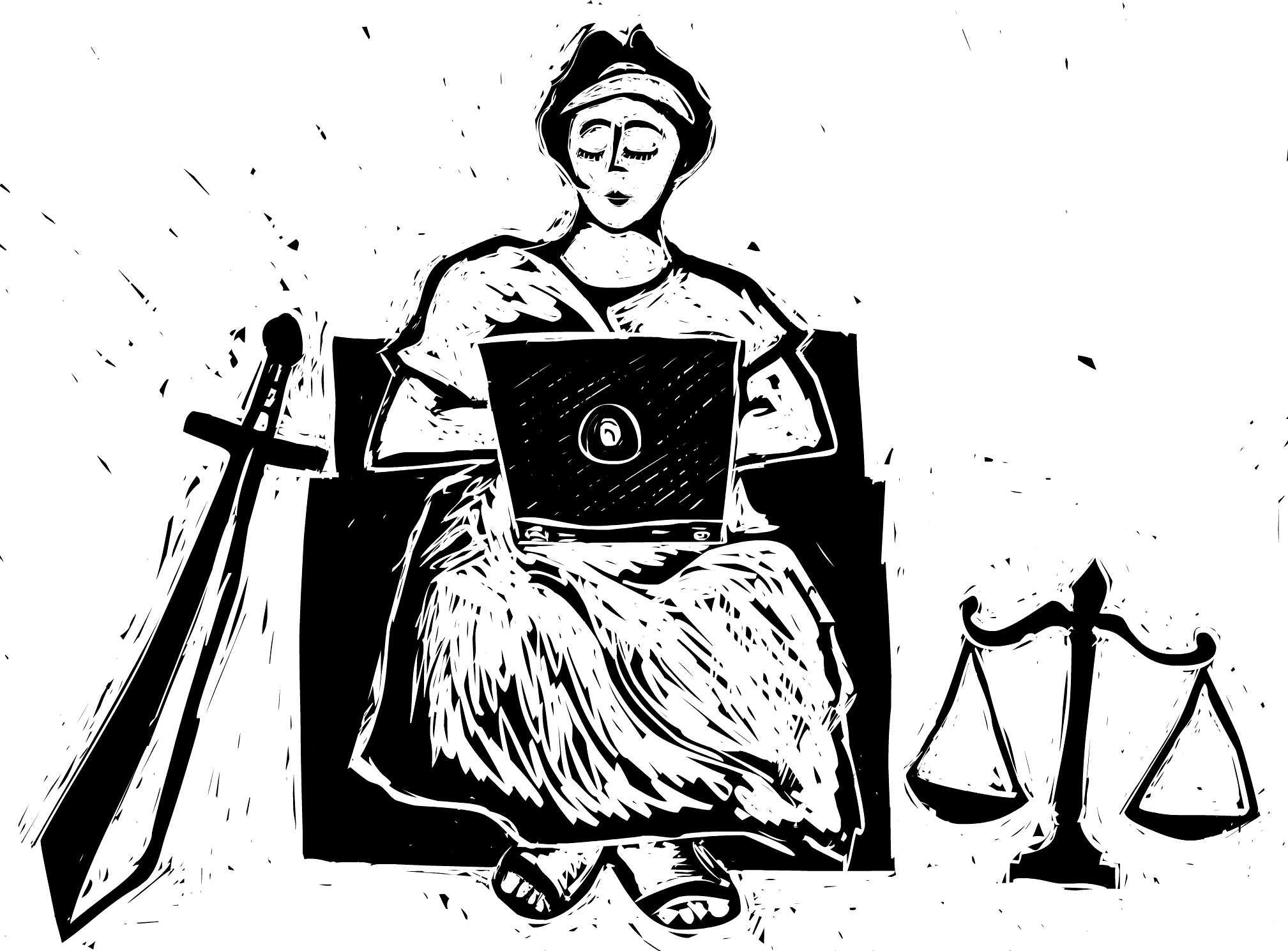Lady Justice
Historian Dr. Felipe Hinojosa talks to attorney Luz Herrera about her legal journeys—from study and practice to teaching and research
lady justice / no border (2007) by Austin Kleon
In this episode of OP Talks, historian Dr. Felipe Hinojosa talks to attorney and law professor Luz Herrera about growing up in Southern California as the only child of Mexican immigrants, attending Stanford University and Harvard Law School, and her journey from practicing law to teaching it.
Before joining academia, Herrera, now a Professor of Law and Associate Dean for Experiential Education at the Texas A&M School of Law, ran her own practice. She also founded Community Lawyers, Inc., a non-profit organization that encourages access to affordable legal services and develops innovative opportunities for legal professionals in underserved communities. Herrera says she learned from personal experience, especially from her time as an undergraduate at Stanford and the importance of having a supportive infrastructure.
"Stanford had really invested in ensuring that their first-gen students and students from underrepresented backgrounds had the support systems they needed to survive,” she recalls. “I was able to thrive, not just survive. For me, that made all the difference…I have very fond memories of the education at Stanford, and it had a lot to do with having the mentors and the support system in place and having a community that felt comfortable and similar to the one I knew.”
Herrera has conducted research on legal-service delivery in the Rio Grande Valley, the southernmost part of the Texas-Mexico border. She is the lead author on “Evaluating Legal Needs,” a study published in the Notre Dame Journal of Law, Ethics and Public Policy 175 (2022) that looked at resident attitudes towards lawyers and what residents are doing to address their legal needs. That region was an interesting choice, Herrera notes, because it has one of the largest Latino populations in the United States, which allowed them to create a national legal needs study that looked at how Latinos interact with the legal system. Herrera and her team – which included Dr. Hinojosa, who interviews her in this episode – found that several language and cultural barriers have kept Latinos from accessing the legal system.
The study found a lack of information and resources in the region. The researchers also encountered attitudes like the idea that, if one has a problem, one figures it out at home, because “qué vergüenza, that people know you are having a problem.” But there was also the “general distress and a bit of fear” that mixed-status families felt in such a highly militarized part of the country.
“You might have a family member who’s undocumented, and you’re exposing yourself to a legal system that isn’t always seen as something that can help you but something that can harm you,” Herrera says of their findings among participants involved in the study. “The majority of the people we talked to did not have documentation concerns for themselves. They could have a member of their family who was undocumented, and so they were more concerned about engaging the legal system because of that.”



